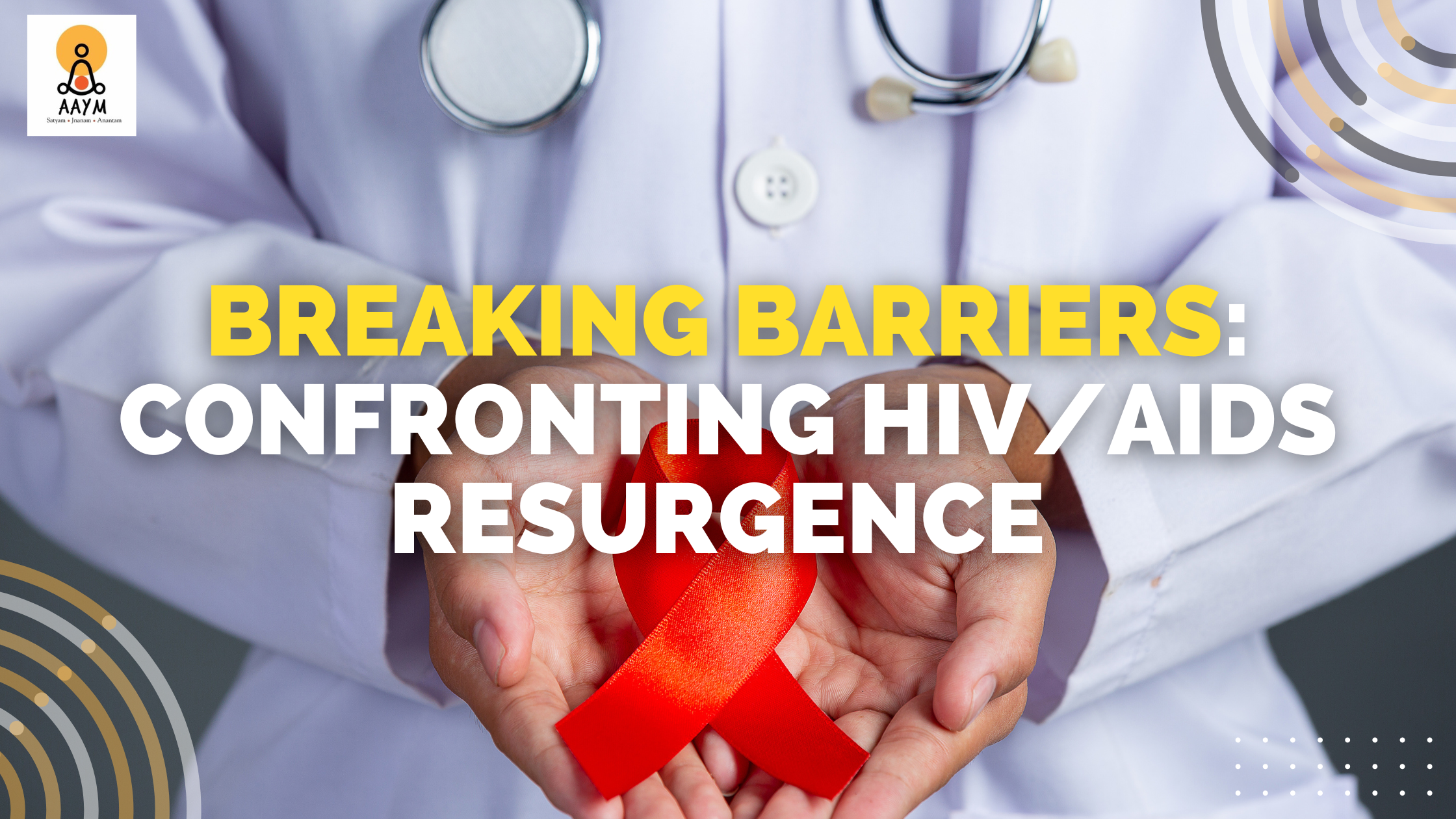Welcome to the latest edition of our newsletter, where we delve into pressing global health issues. In this edition, we shine a spotlight on the resurgence of HIV/AIDS, a formidable challenge that continues to impact communities worldwide. Despite decades of research and awareness efforts, recent trends indicate a concerning uptick in the prevalence and impact of HIV/AIDS, underscoring the need for renewed attention and action.
In the big world of health, HIV/AIDS is still a big problem, affecting millions of people everywhere, even though we’ve been trying to fight it for a long time. But lately, it seems like HIV/AIDS is coming back stronger, affecting even more people. This shows that we must pay more attention to and do something about it.
The Resurgence of HIV/AIDS
In various regions, there has been a troubling resurgence of HIV/AIDS despite significant progress in combating the virus. Several factors contribute to this resurgence:
The Persistent Challenge of HIV/AIDS
HIV/AIDS has long been recognized as a significant global health threat, affecting millions of lives and communities across the globe. Despite advancements in treatment and prevention, the virus continues to pose formidable challenges, particularly in regions with limited resources and access to healthcare. Stigma, discrimination, and socioeconomic factors further exacerbate the impact of HIV/AIDS, underscoring the need for comprehensive and sustained efforts to address this ongoing public health crisis.
A Troubling Resurgence
Recent data has highlighted a troubling resurgence in the prevalence and impact of HIV/AIDS in various parts of the world. While progress has been made in reducing new infections and improving access to treatment, certain factors have contributed to the resurgence of the virus. These include complacency in prevention efforts, persistent stigma and discrimination, inadequate access to healthcare services, and emerging challenges such as migration and substance use.
Understanding the Impact
The resurgence of HIV/AIDS has far-reaching implications for affected communities, exacerbating existing health disparities and economic inequalities. Individuals living with HIV/AIDS face not only the physical challenges of managing the virus but also social isolation, discrimination, and financial hardship. Furthermore, the impact of HIV/AIDS extends beyond individual health, affecting families, communities, and societies as a whole.
Addressing the Challenges Ahead
To effectively tackle the rising issues of HIV/AIDS, a multifaceted approach is necessary. This includes:
In the big world of health, HIV/AIDS is still a big problem, affecting millions of people everywhere, even though we’ve been trying to fight it for a long time. But lately, it seems like HIV/AIDS is coming back stronger, affecting even more people. This shows that we must pay more attention to and do something about it.
The Resurgence of HIV/AIDS
In various regions, there has been a troubling resurgence of HIV/AIDS despite significant progress in combating the virus. Several factors contribute to this resurgence:
The Persistent Challenge of HIV/AIDS
HIV/AIDS has long been recognized as a significant global health threat, affecting millions of lives and communities across the globe. Despite advancements in treatment and prevention, the virus continues to pose formidable challenges, particularly in regions with limited resources and access to healthcare. Stigma, discrimination, and socioeconomic factors further exacerbate the impact of HIV/AIDS, underscoring the need for comprehensive and sustained efforts to address this ongoing public health crisis.
A Troubling Resurgence
Recent data has highlighted a troubling resurgence in the prevalence and impact of HIV/AIDS in various parts of the world. While progress has been made in reducing new infections and improving access to treatment, certain factors have contributed to the resurgence of the virus. These include complacency in prevention efforts, persistent stigma and discrimination, inadequate access to healthcare services, and emerging challenges such as migration and substance use.
Understanding the Impact
The resurgence of HIV/AIDS has far-reaching implications for affected communities, exacerbating existing health disparities and economic inequalities. Individuals living with HIV/AIDS face not only the physical challenges of managing the virus but also social isolation, discrimination, and financial hardship. Furthermore, the impact of HIV/AIDS extends beyond individual health, affecting families, communities, and societies as a whole.
Addressing the Challenges Ahead
To effectively tackle the rising issues of HIV/AIDS, a multifaceted approach is necessary. This includes:
- Prevention: Intensifying efforts to promote safe sex practices, expand access to HIV testing and counselling, and address underlying social determinants of health. Comprehensive sex education programs, combined with the widespread distribution of condoms and access to pre-exposure prophylaxis (PrEP), are essential for reducing new infections.
- Treatment and Care: Expanding access to antiretroviral therapy (ART) to ensure all individuals living with HIV/AIDS have access to life-saving treatment. Additionally, efforts to improve retention in care and adherence to medication regimens are crucial for achieving viral suppression and reducing transmission rates.
- Combating Stigma: Addressing stigma and discrimination through education, advocacy, and community engagement. Promoting acceptance, tolerance, and empathy towards individuals living with HIV/AIDS creates supportive environments and reduces barriers to care.
- Empowering Communities: Supporting community-based organisations and initiatives that provide tailored prevention, treatment, and support services to those most affected by HIV/AIDS. Empowering communities to take ownership of their health and well-being is essential for sustainable progress.

